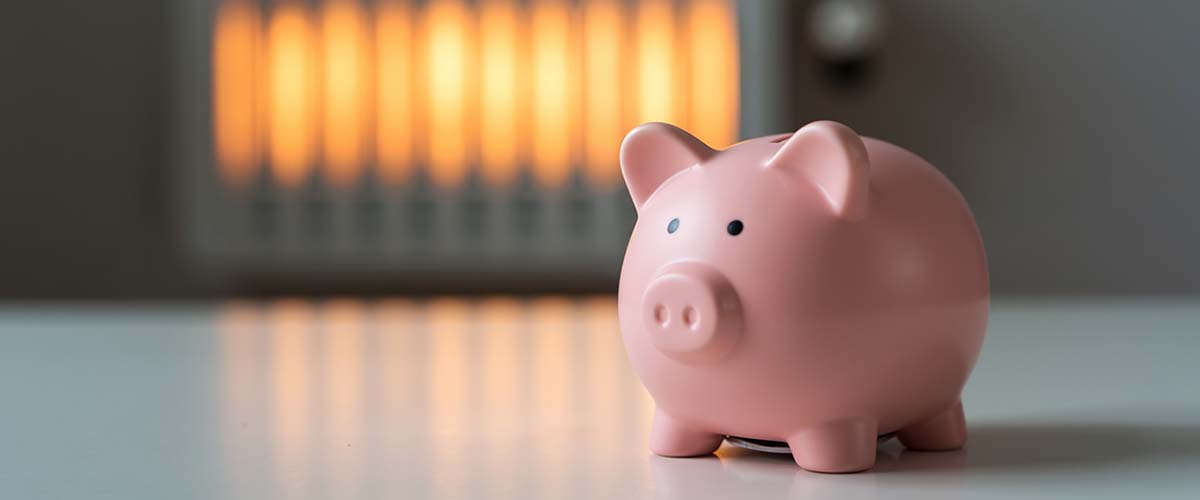Your energy bill jumped again, didn’t it? You’re staring at the number, wondering if it’s the AC’s fault or the heat that’s eating your budget. I’ve had that same conversation with more than a few neighbors. The short answer: heating and cooling costs depend on your home, your equipment, and the weather. Around here, we slog through long, muggy summers and mild winters, so cooling often edges out. However, a drafty house or electric resistance heat can be reversed. Let’s walk through the cost drivers of heating and cooling and what you can do about them today.
Understanding Heating vs Cooling Costs
Think of your house like a cooler. The bigger the temperature difference outside versus inside, the faster heat moves across the walls, ceiling, windows, and doors. In summer, you pay the cost of cooling a home; in winter, you pay the cost of heating a home. The challenge is humidity. When the air feels clammy, your AC must remove moisture from it before it can effectively cool the space. That extra moisture load is why August can significantly increase a power bill, even if you don’t adjust the thermostat.
Fuel and equipment matter, too. A gas furnace may deliver heat more efficiently per unit of energy, while electric resistance heat is more expensive. Heat pumps are wonderfully efficient here because they move heat instead of generating it. On the cooling side, an older unit with a tired compressor will run loudly and for an extended period, while a newer variable-speed system hums quietly and conserves energy. Envelope issues—leaky ducts in a hot attic, thin insulation, sun-blasted west windows—can turn either season into a money pit.
Quick Fixes to Try First
Start with the thermostat. A small adjustment, like nudging your cooling setpoint up by just one degree (and heating it down by one degree), can make a noticeable difference in your energy bill without compromising comfort. Combine this with the use of ceiling fans on low settings, which can make you feel cooler at a higher temperature. Instead of shutting the doors to rarely used rooms, keep them mostly open to maintain a balanced pressure and prevent hot air from entering through leaks. These simple fixes can put you in the driver’s seat of your energy usage.
Next, fight the sun. Close blinds or shades on east windows in the morning and west windows in the afternoon. You’ll feel the room calm down as that harsh, slanting light stops roasting the sofa. Run bathroom and kitchen exhaust fans for 10-15 minutes to kick out moisture after showers and cooking. Check your filter; if it resembles a gray felt blanket, replace it. A clean filter is like opening a stuffy nose—air moves more easily, and the system works less.
If you’ve got a wood fireplace, close the damper (and the glass doors) when it’s not in use. That chimney is a straw to the outdoors. And set your AC fan to Auto, not on. The On setting can make the air feel swampy by re-evaporating moisture off the coil between cycles.
Prevention and Maintenance
A well-tuned system costs less to run. In the spring, clean the outdoor unit by gently hosing off pollen, pine straw, and cottony fluff from the coil fins. I’ve popped open panels and found entire seasons of leaves packed inside—no wonder the compressor sounded winded. In the fall, have a pro check electrical connections, refrigerant levels, safety controls, and (for gas) the flame pattern. The first heat of the season shouldn’t smell like burnt dust for hours. A quick pre-season run burns off that harmless film in a controlled way.
Regular maintenance keeps your system running efficiently and prevents costly breakdowns. Seal the home’s envelope: weatherstrip exterior doors, add door sweeps, and caulk obvious gaps. Attic insulation is huge: if you peek across and see the tops of your joists, you’re under-insulated. Bringing an attic up to modern levels turns that scorching space from a bread oven into a manageable buffer. Ducts running through a hot attic should be sealed with mastic and well insulated; leaky ducts literally pay to heat or cool the attic.
Consider shade and glass. A simple awning, solar screen, or low-e film on west-facing windows tamps down that late-day blast you can feel on your skin. In the long run, upgrading to a high-efficiency heat pump or a variable-speed air handler can help smooth out temperature swings and lower your bills. Small changes add up—think of maintenance as making the whole house exhale more easily.
When You Need Professional Help
Call in a pro if your bills spike without an apparent reason, rooms feel uneven, the system short-cycles, ice forms on the refrigerant line, or your indoor humidity hangs over 60% and won’t budge. A trained technician can identify the cause of issues such as a dirty coil, a failing capacitor, a mischarged system, or a duct problem. If you’ve got a furnace with a yellow, flickering flame or a burning smell that doesn’t clear, power it down and schedule service. Safety first.
For greater comfort and lower heating vs. cooling costs, ask for a home performance approach. A Manual J load calculation, duct inspection, and a blower-door test give you data, not guesses. I’ve seen “too small” systems blamed for years when the real culprits were attic bypasses and a return duct leak. Right-sizing replacement equipment is critical; oversized gear short-cycles, struggles to dehumidify, and costs more to run.
If you’re exploring upgrades, consider variable-speed heat pumps, dedicated whole-home dehumidifiers (ideal for shoulder seasons), and smart thermostats with humidity control. There are often rebates or tax credits for efficiency improvements, and a good contractor will help you
navigate them. We offer affordable prices on quality equipment and installations. The goal isn’t the fanciest gear—it’s a comfortable, quiet home with predictable bills. Whether you need residential or commercial HVAC services, professional installation makes all the difference.
Common Questions
What costs more, heating or cooling a home?
Around here, cooling usually wins because our summers are long and humid, while winters are short. That said, electric resistance heat can be costly—consider switching to a heat pump or using gas if available to tip the scale back.
Are heat pumps expensive to run in winter?
Not typically. In our climate, they’re efficient most days, only needing backup heat during rare hard freezes. Keep filters clean, and defrost cycles will be brief and uneventful.
Should I leave the fan on for air circulation?
Use Auto. One can raise indoor humidity and make you feel sticky. To promote circulation, run ceiling fans and keep the filters fresh.
Do ceiling fans really save energy?
They don’t cool the air, but the breeze lets you raise the thermostat a degree or two. That small change adds up over a long season in Milledgeville, GA.
Do you have more questions about heating and cooling costs? We’re here to help you find the most efficient solutions for your home.



